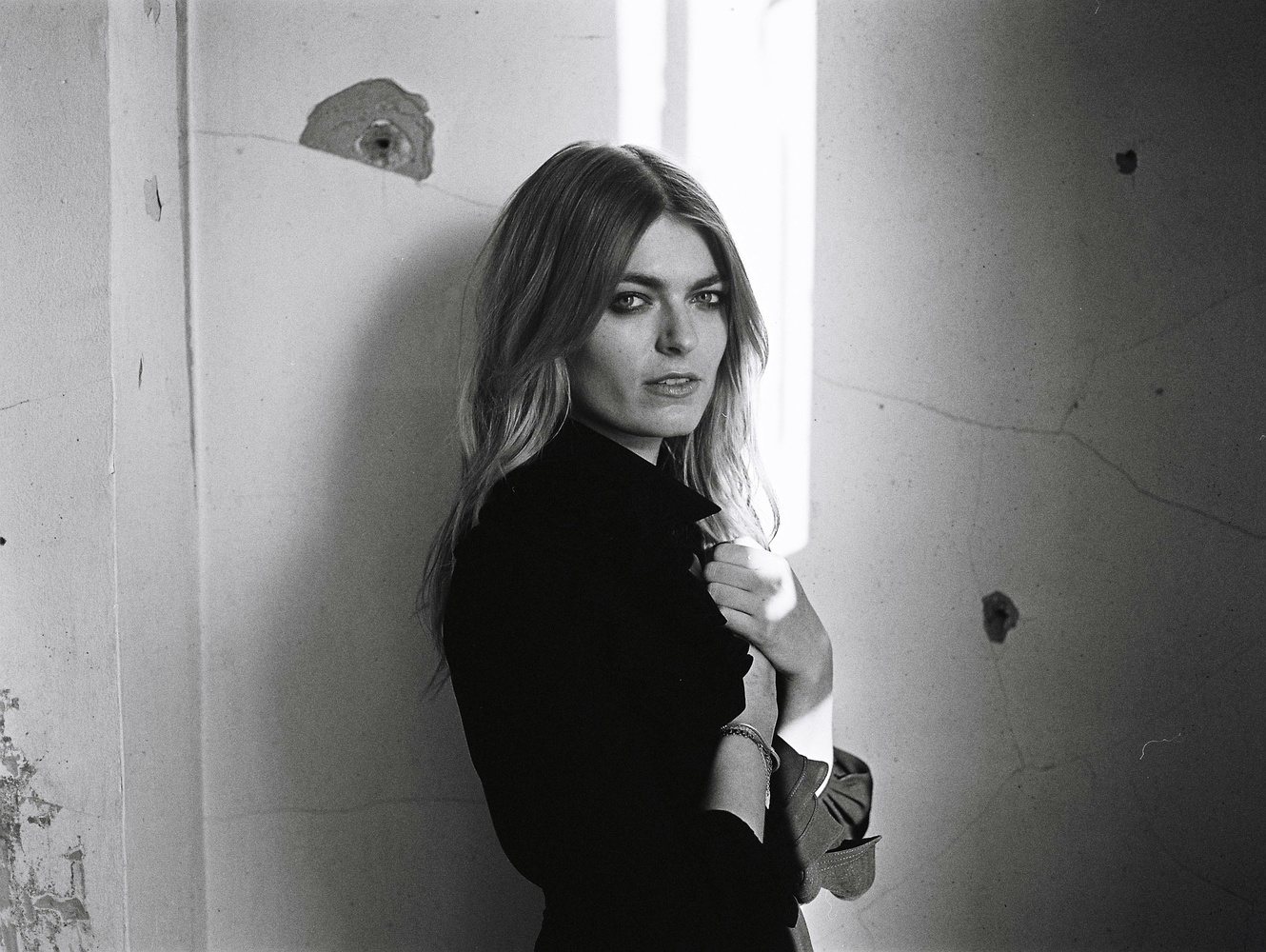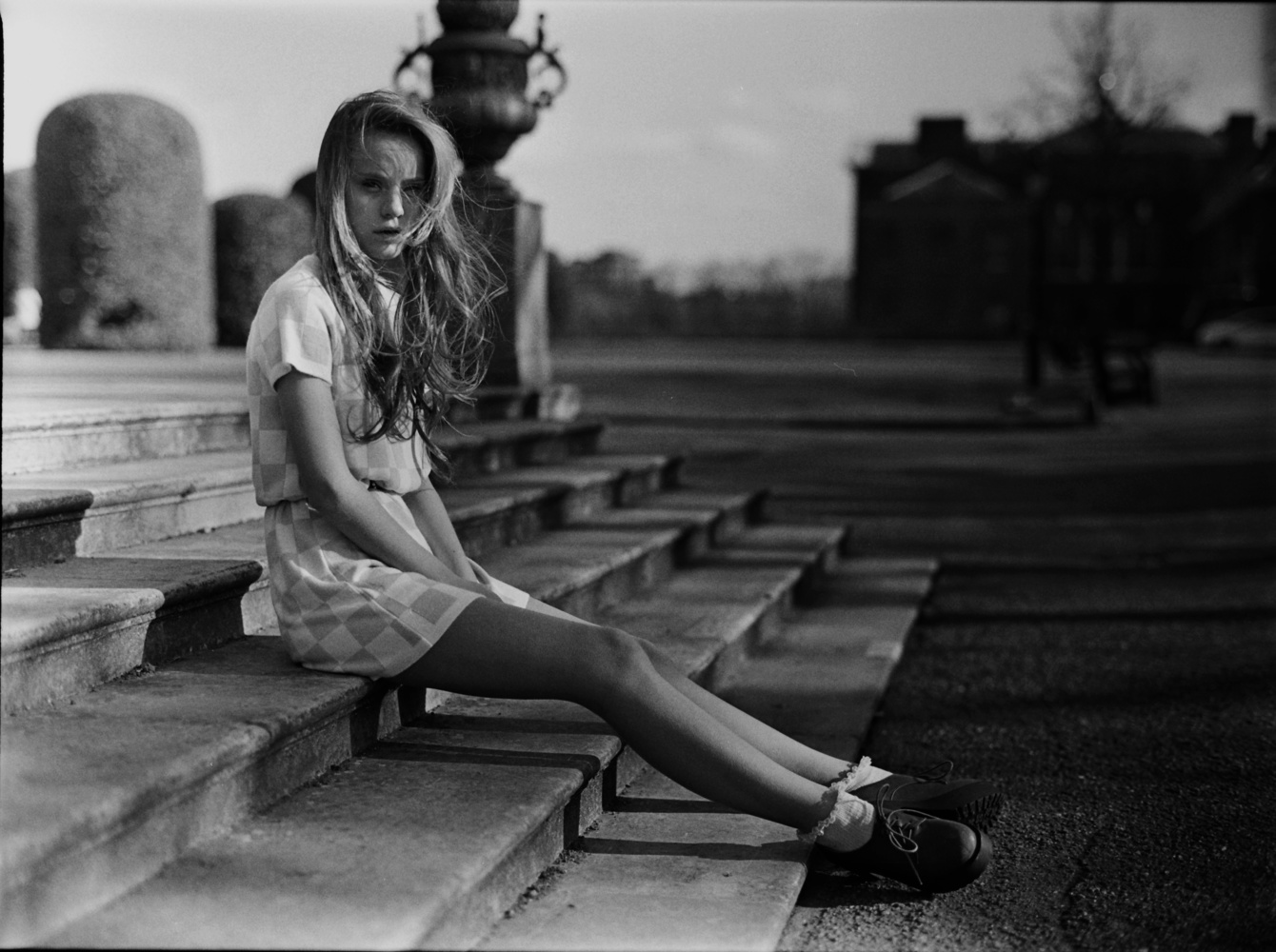The debate surrounding the relevancy of film cameras is an ongoing one; the opinions about which vary from photographer to photographer. The resurgence of digital camera technology in recent years has meant DSLRs are now widely used by the masses, pulling the future of film photography into question somewhat. Is it now just a novelty? I chatted with Howard, one of the owners of a North England-based camera shop that shunned digital cameras in favour of film... and found that business is very much booming.
Let’s start with the basics. West Yorkshire Cameras specialise in film cameras. They don’t stock any digital equipment. Perhaps a bold move given the current climate; with demand for DSLRs at an all time high.
It all began with purchasing large bunch of cameras from a camera fair, although Howard acknowledges that this isn’t the most reliable or long-term method of sourcing stock. WYC almost exclusively source cameras from the public, which Howard tells me can be a double-edged sword at times. He explains, “whilst we get a lot of enquiries, we never quite know what we will come into stock, but that also means we get some exciting items. I always enjoy it when customers bring in a bag full of equipment, not knowing what is inside. The suspense kills me!”

James Bay
I always seem to get a lot of enquiries about film photography whenever I post any of my film work. As someone I largely consider to be an expert in all things film, I thought now was a good a chance as any to pick Howard's brain on behalf of anyone seeking advice on purchasing a film camera.
First of all, you need to consider what exactly you’re planning to take photographs of. “Static subjects like landscapes or studio work will lend themselves to large, high quality cameras like an RB67 or 5x4 camera, whilst fast moving subjects or fleeting moments are more suited to a small, compact, easy to use camera such as a Leica rangefinder or modern, autofocus compact,” says Howard. “A 35mm SLR is generally suited to most types of photography.”
Next up: How confident are you? If you’ve grown accustomed to DSLRs and being able to instantly review feedback on your images, as well as using automatic focus and settings, Howard says it’s unlikely you will get the best out of a film camera, which is going to have very basic controls. “Scale focus, no light meter, and completely manual exposure. If you try to run before you walk, you’ll more often than not end up with a roll of photos you’re not happy with, and not want to try again in fear of not getting it right. I’d recommend starting with something like an Olympus OM10, Minolta X300, Nikon FE, Canon AE-1, or Pentax ME. All these cameras have automatic exposure, and built in light meters – but also have fully manual options too for when you want to try going it alone.”
That’s not all. “Bear in mind that a lot of older cameras are faulty in some way or another. A lot,” Howard warns. He tells me that often his customers find such faults are not so obvious; it’s not until a film comes back totally blank, out of focus, or with light leaks, that an issue becomes apparent. “It can be quite frustrating. If you are not sure how to check shutters, spot fungus, or know the common faults of particular models,” he says, advising that those without experience in shooting film needn’t buy a “charity shop Trip 35 for £20”; nor be tempted by the ‘it worked last time it was used’ Nikon on eBay.” The suggestion? Sticking to the bigger brands, or at least the bigger brands of the day. “Avoid anything Russian, in general.” Gotcha!

Laura Doggett
Since the introduction of the first digital camera, there’s been a futile debate about which is better: film or megapixels. Naturally, I wanted to hear it plain and clear from Howard what the advantages of a film camera are, compared to digital? I’m a film fan, definitely. But for me it’s more of a novelty; for my day-to-day clients - who often seem to expect results turned around within a couple of days - film is entirely impractical. I guess it depends on the project, the timescale, and what the images are for.
Refusing to take sides, Howard believes that neither medium is better than the other; they both have strengths and weaknesses, and different uses.
“In terms of film cameras, I personally like completely mechanical ones – that is, cameras that don’t have an electronically powered shutter, or in most cases take no batteries at all. Firstly because it’s one less thing to worry about, and secondly, when you release the shutter or adjust the controls you can feel everything move inside the camera… it's more responsive and you get to know exactly what to expect from it. I am aware that sounds a bit pretentious but I think that comes from handling a lot of different camera models, to the point that I have really acquired a feel for which ones are good or bad (to me) - it's hard to describe.”
“There’s certainly a lot more variety of camera models and styles to choose from in Film too: Rangefinder, SLR, TLR, Field, Box, Pinhole, Compact, automated, manual, old new, and so on. It's not about the image quality for me either - to be honest all cameras of a similar type take broadly the same photos – an SLR camera from Manufacturer X will take the same photo as a similar model from Manufacturer Y. It's about how the particular camera is to use and how I get on with them, because the controls and the quirks might be vastly different.”
And for Howard, the enjoyment of film doesn’t stop there. West Yorkshire Cameras also run a development service, much of which is done by Howard himself. “The process of developing film photos for me is also enjoyable, [working with] a limited number of photos encourage you to think about what you're doing much more than blasting away on ‘machine gun mode’ as you might with a DSLR. Developing is great fun too, pushing film, increasing contrast, pulling the negatives out of the tank, taking a look what you got (or have not got...) and rediscovering photos you forgot you even took is exciting. Whether or not the whole process leads to better images is debatable, but I can say with certainty that it’s much more satisfying.”

What about the popularity of film? Will it remain popular as a novelty? The success of West Yorkshire Cameras (they even just upgraded to a larger shop unit) tells me that demand is still very much there.
When I asked Howard about the popularity of film in recent years, his answer was interesting. He believes that now we’ve reached the stage whereby many of this generation’s photographers have grown up with digital cameras, there’s a new demand for film as many people are just discovering it for the first time… and are finding out just how different it is. “It improves your photography a lot and has a lot of character in it” he says, noting the similar resurgence of vinyl in recent times. “People appreciate the character given off by analogue equipment.”
“Film is definitely here to stay - even if it's as a side arm to digital, I think people will love it for years - nothing beats the feel of a film photo, the excitement of opening a pack of prints or opening your dark tank to see the negatives.”

You can browse West Yorkshire Camera's collection on their website, or find them on Facebook and Instagram.
All images shot by Jack Alexander, using a Mamiya 645 1000s and, funnily enough, developed by West Yorkshire Cameras.







It's great to see a camera store that focuses on film cameras. Even though I have a DSLR, I enjoy photographing with my Canon A-1 and F-1N. Now that "Brexit" has happened, perhaps the exchange rate will be favorable for the US.
I've been dabbling with film again, after many years of digital, and like the author use a Mamiya 645, and more recently, a Mamiya Press 6x9.
Given how cheap those Mamiya 645 cameras can be, I recommend them to those interested in starting with digital. These are the advantages of film as I see them:
1. Film cameras - especially the mechanical kind - handle bad weather better than consumer-grade digital. (That's what prompted me to get my 1st 645 camera, in fact - I wanted to photograph during rain and snow storms)
2. Depending on how you scan, color film has 16 bit color vs 14 bit for digital. It makes a difference.
3. Color print film has more dynamic range than today's digital sensors. Highlights are more forgiving; you don't get "hard" clipping.
4. Depending on how you scan, medium format film still wins the megapixel wars. (Digital is catching up, admittedly, but has a ways to go before it beats 6x9)
5. Playing with old cameras is fun.
6. Film has a "look" that's more, for want of a better word, complicated, than digital sensors.
And one final point that's either a plus or a minus, depending:
- Film is a PITA. Even if you're shooting 35mm, you're spending a dollar or so per shot. (And it's a couple of dollars if you shoot 120 - and god help your bank account if you're doing 8x10) On the positive side, this means you shoot with greater forethought and discipline. On the minus side, it means you're less likely to experiment - you only take "safe" pictures you're sure will work.
Bought quite a few things from these guys, the service has always been exceptional. They tend to have a better selection in store than online.
That's amazing! Small world.
Personally, I can't get over the sound the Mamiya rz67 makes when I shoot with it. I also enjoy how slow the process of making an image with film cameras can be - like manual focusing. I enjoy this so much so that manaually focus with my digital camera or use a lens that only manually focuses.
Film ain't dead. Large format is still analog.
Haha, I discovered this post yesterday morning, after reading I visited West Yorkshire Camera's and found my old camera I shot with back the late 70's early 80's thus I had to hit the buy button that afternoon. Looking forward to re-discovering my OLD favorite. It's not often a post has such a direct impact but I simply could pass on the opportunity ... The best part is I only spent $100cad for 35mm camera and 50mm f/1.8 lens.
Thanks for the heads-up.
Haha awesome!